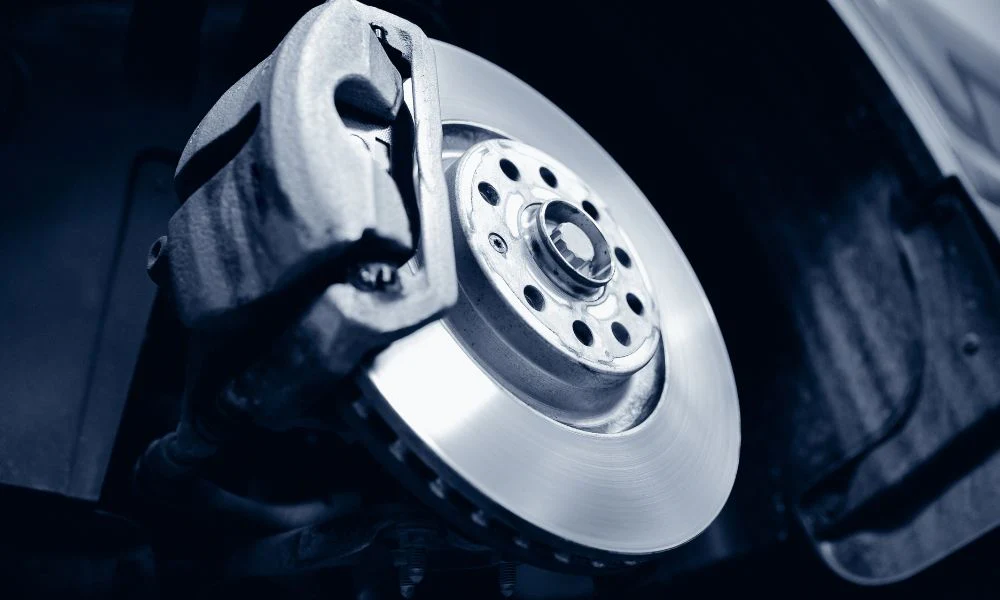If you regularly tow a trailer, haul heavy equipment, or carry a full load of passengers and luggage, your vehicle’s brakes are working much harder than they would under normal conditions. This added stress can have a significant impact on your braking system, compromising performance and safety if not properly managed. Understanding how towing and heavy loads affect your brakes is the first step toward ensuring your vehicle remains safe and reliable on every journey.
The Physics of Towing and Braking
Simply put, the more weight you add, the more energy your brakes must convert into heat to slow and stop the vehicle. A vehicle’s braking system is designed for its curb weight and a standard payload. Consequently, when you attach a heavy trailer or fill the vehicle to its maximum capacity, the braking system’s job becomes much more difficult.
This added stress leads to three key issues:
- Increased Heat: More friction is needed to stop a heavier load, which generates much more heat.
- Increased Wear: Pads and rotors wear down much faster under the added strain.
- Reduced Performance: The braking system can be overwhelmed, leading to brake fade and a significantly longer stopping distance.
The Dangers of Brake Fade
Brake fade is a critical safety issue and the most common danger of towing. It occurs when a brake’s friction components (pads and rotors) become so hot that their ability to create friction is severely reduced.
As a result, even if you press the brake pedal with full force, the vehicle will not slow down as it should. This is particularly dangerous when descending long hills, where continuous braking can quickly cause the brakes to overheat.
How Towing Impacts Each Brake Component
Towing and heavy loads affect every part of your braking system.
- Brake Pads: First and foremost, brake pads will wear down at a much faster rate. Therefore, if you normally change your pads every 40,000 miles, towing regularly could cut that lifespan in half or more.
- Brake Rotors: The immense heat generated can cause rotors to warp, leading to a pulsating brake pedal and reduced effectiveness. Furthermore, prolonged overheating can lead to cracking, which is a serious safety hazard.
- Brake Fluid: As brake fluid is hygroscopic, it can absorb moisture, lowering its boiling point. When towing, the increased heat can cause this contaminated fluid to boil, creating vapor bubbles and a spongy brake pedal, which is a key symptom of brake fade.
- Caliper and Hardware: The added stress and heat can lead to premature wear on caliper pistons and slide pins, potentially causing them to stick and causing uneven pad wear.
Essential Brake Maintenance for Towing and Heavy Loads
If you plan to tow or carry heavy loads, you must be proactive with your brake maintenance.
- Upgrade Your Brakes: Consider upgrading your stock braking system with parts designed for heavy-duty applications. This includes:
- Heavy-duty brake pads: Pads with a compound formulated for higher temperatures and greater durability.
- High-carbon or slotted rotors: These are better at dissipating heat than standard smooth rotors.
- High-temperature brake fluid: A high-performance brake fluid with a higher boiling point can prevent brake fade.
- Regular and Frequent Inspections: Since components wear faster, schedule brake inspections more frequently than the manufacturer’s standard recommendation.
- Proper Driving Techniques: Finally, proper driving techniques are crucial.
- Use your gears: When going downhill, shift into a lower gear to use engine braking. This reduces the stress on your friction brakes significantly.
- Maintain distance: Leave a greater following distance to give yourself more time and space to slow down.
- Avoid prolonged braking: Brake in shorter, deliberate applications rather than a long, continuous press.
Conclusion: Safety Over Convenience
In conclusion, towing and heavy loads put your brakes to the ultimate test. Therefore, never take the performance of your braking system for granted when you’re carrying extra weight. By understanding the impact, upgrading where necessary, and committing to proactive maintenance and proper driving techniques, you can ensure that your vehicle remains safe and reliable, no matter the load.



